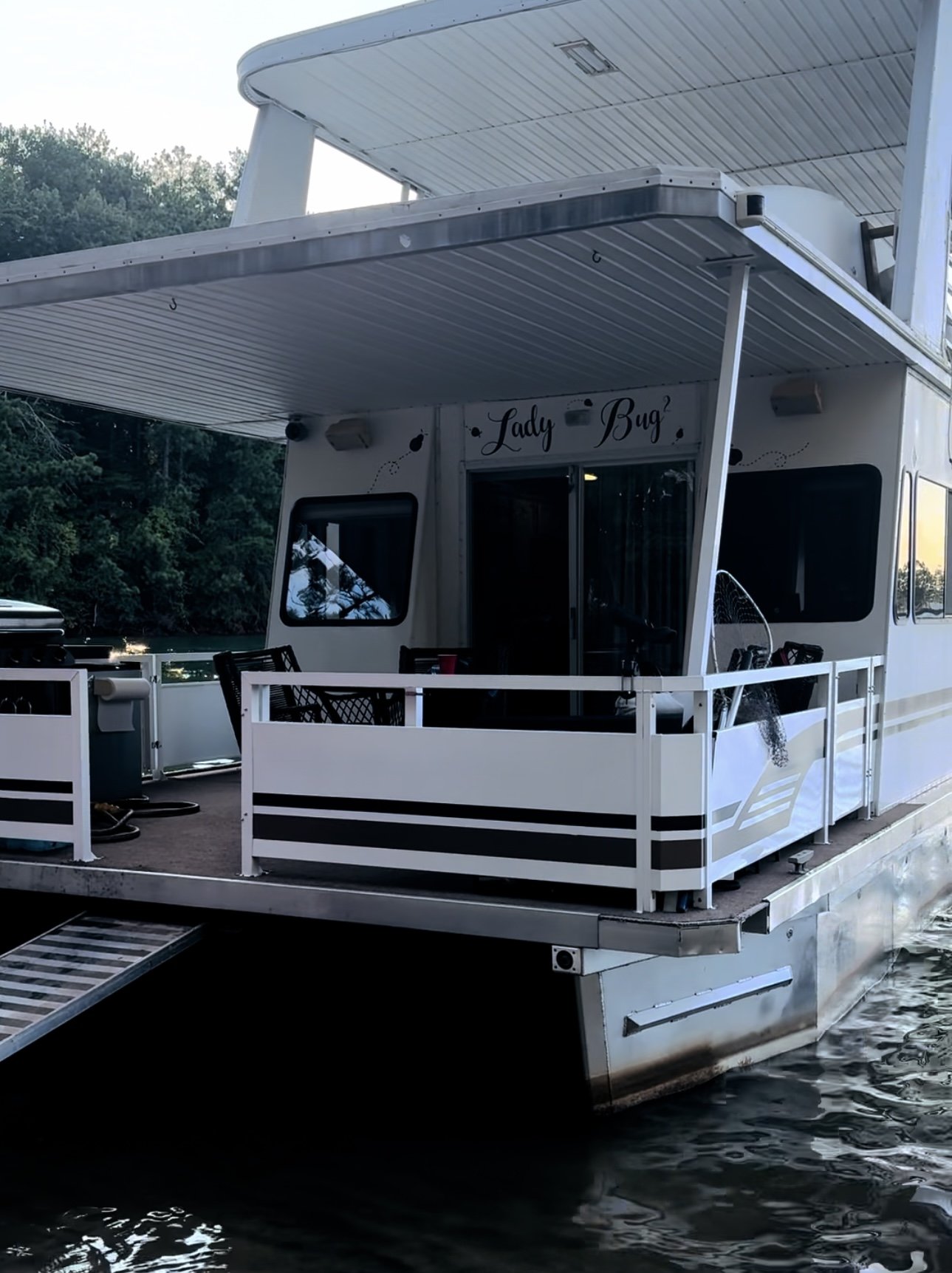Important Things to look for when Buying a Houseboat
Buying a houseboat is a huge investment, comparable to purchasing a home in many ways. Houseboats can cost anywhere from $20,000 and up, making it essential to do your research before committing. There’s something truly special about owning a floating home, but before you take the leap, here are a few key things to consider.
Our first Houseboat!
1. Never Buy a Boat with a Steel Bottom
Steel-bottom boats require more maintenance and are at high risk for corrosion and rust, which can be costly to repair and harmful to the environment.
2. Check for Soft Spots
Soft spots can be hidden damage. Walk the entire floor space of the boat, including any upper decks, and inspect around windows. Soft spots typically indicate water damage. While not always a deal-breaker, you should assess the severity and repair costs before making a decision.
3. Make Sure There’s Enough Space for Your Needs
Consider how much space you and your family will need to enjoy the boat comfortably. If you plan on cooking often, ensure there’s enough counter space in the kitchen. Creating a wish list before looking at boats can help you stay focused on what’s most important.
4. Can You Drive It from the Top?
While not a necessity for everyone, having an upper helm provides better visibility when navigating open water or docking. On our houseboat, my husband prefers driving from the top when we’re out, but he switches to the interior steering when docking. Having both options is a great advantage.
5. How Many Hours Are on the Motors?
The number of hours on the motors gives insight into wear and tear. A houseboat that’s around 10 years old should typically have between 500-1,000 hours. Our current boat is 19 years old with only 445 hours—meaning the engines are practically new! If you don’t plan on taking the boat out often, this may not be a major factor, but for frequent boaters, it’s an important consideration.
6. Does the Generator Work?
A working generator is essential if you plan to take the boat out for extended periods. It powers key functions like the refrigerator, air conditioning, and even the toilet. Our first houseboat didn’t have a working generator, which wasn’t a big issue for us since we didn’t plan on taking it out. However, if your goal is weekend getaways on the water, make sure the generator is in working order.
7. Does the Boat Run?
It might sound like an obvious question, but not all houseboats are sold in running condition. Neither of our houseboats ran when we bought them, but we knew what we were getting into. With our second boat, we got such a great deal that we factored in the cost of repairs and still stayed within budget. Fortunately, we were able to get it running without having to replace the engines—lucky us!
8. How Many Engines Are on the Boat?
A houseboat with two engines is ideal for both safety and maneuverability. If one engine fails, you’ll still have another to get you back to the dock. Two engines also make it easier to turn and navigate, especially when docking.
9. Get a Survey
Before finalizing your purchase, hiring a marine surveyor is highly recommended. They can identify hidden issues such as hull damage, engine problems, or electrical weaknesses. Many insurance companies and lenders require a marine survey to determine the vessel’s condition and value. The average cost for a survey is around $20-$25 per foot, but it’s a worthwhile investment for peace of mind.
Final Thoughts
Buying a houseboat is an exciting and rewarding experience, but it’s important to go into it with the right knowledge. Taking the time to inspect the boat thoroughly and understanding what to look for can save you from unexpected surprises down the line. Whether you’re looking for a full-time floating home or a weekend getaway, doing your research will ensure you find the perfect houseboat to fit your needs. Happy boating!
Lady Bug2

